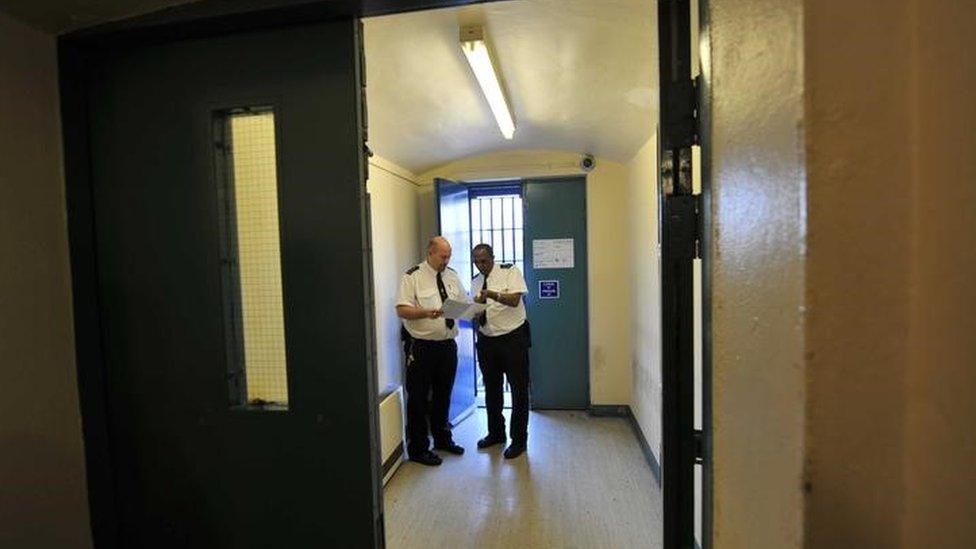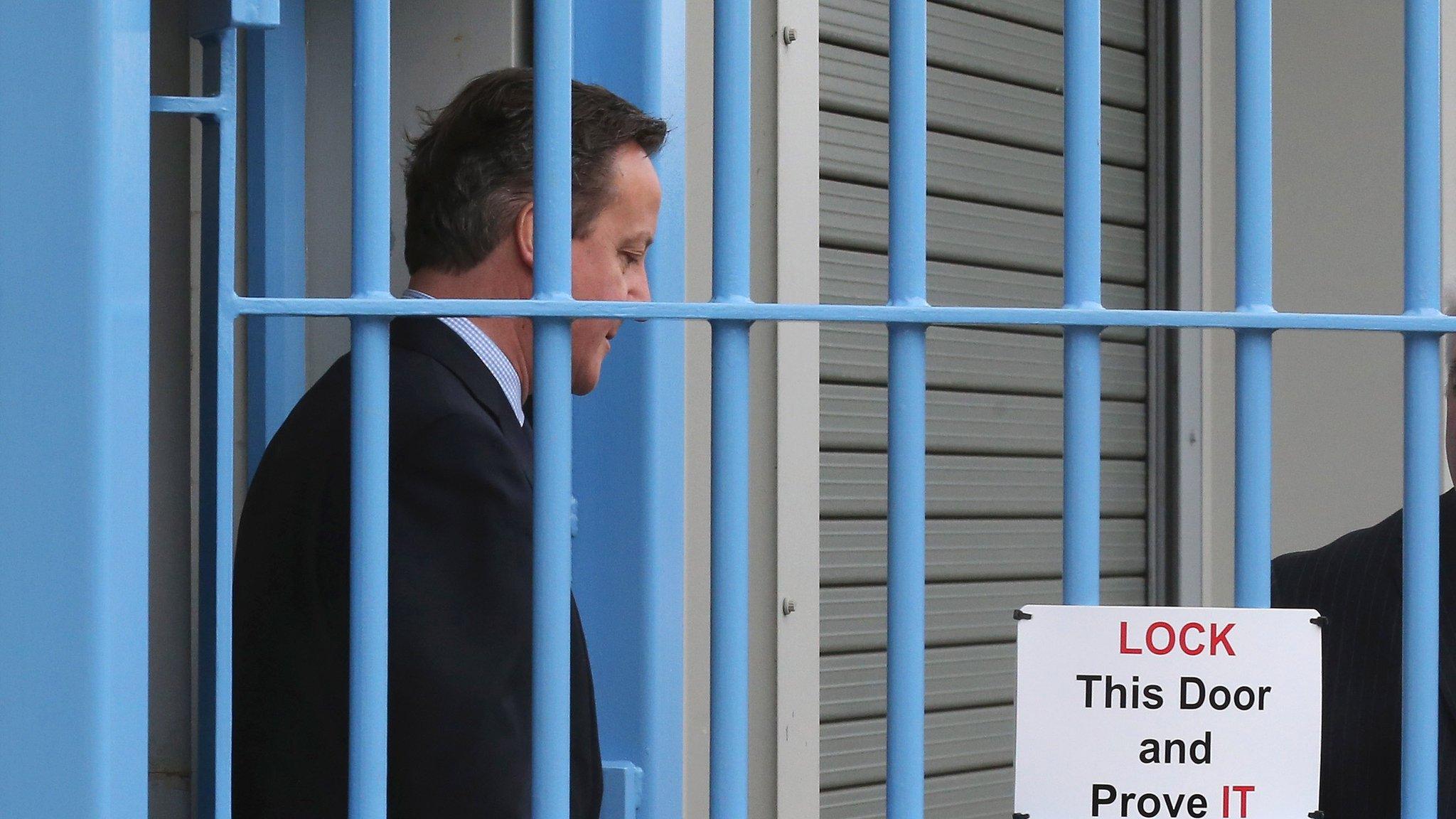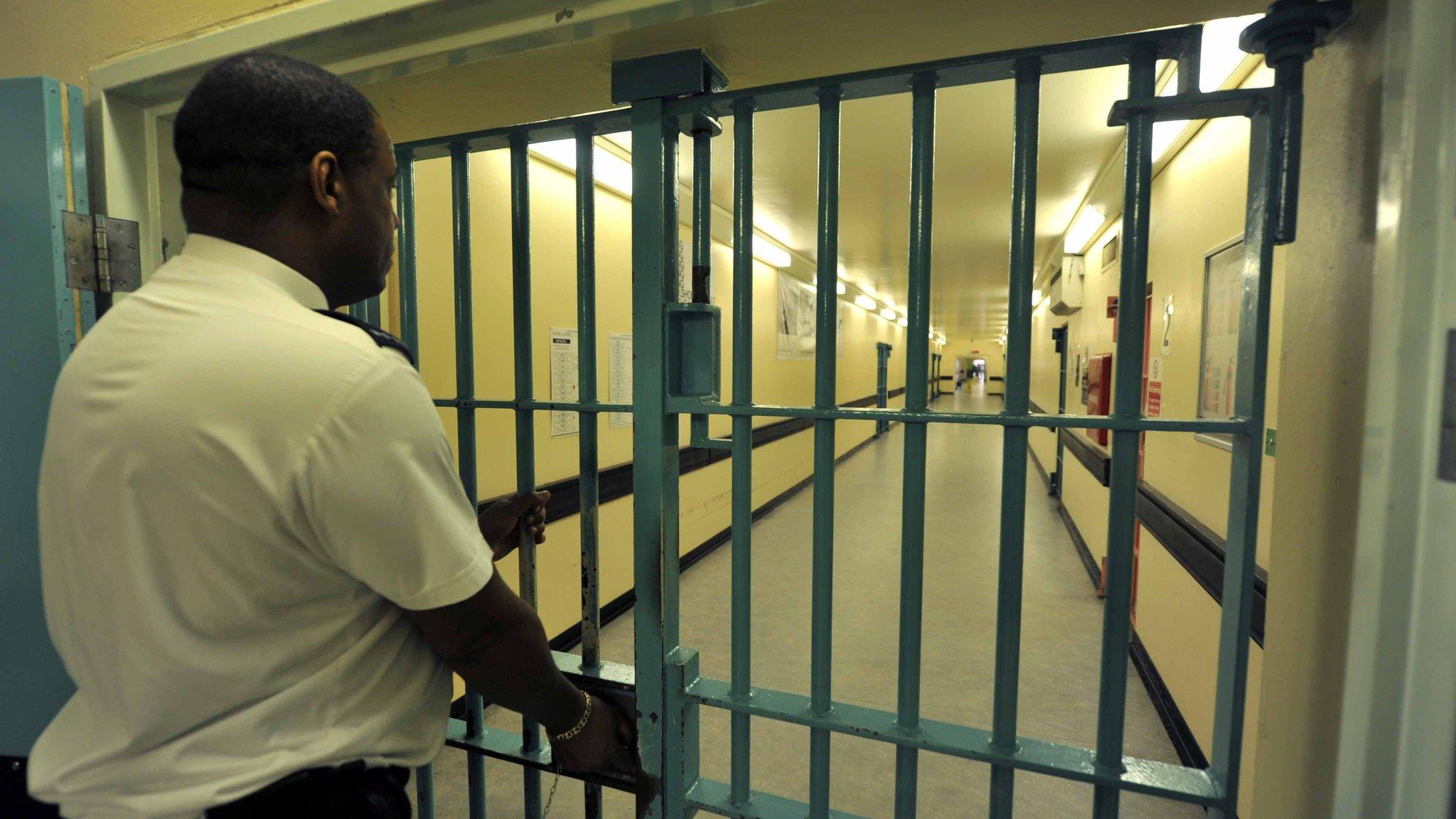Prison numbers 'must fall' for reforms to work says Ramsbotham
- Published

There are currently just over 85,300 prisoners incarcerated in England and Wales
Government prison reforms will fail unless inmate numbers are reduced before they are put in place, a former chief inspector of prisons has said.
Lord Ramsbotham said 30% of prisoners, some 25,000 inmates, could be freed.
And Bob Neill, Conservative chairman of the Justice Select Committee, said prisoner numbers in England and Wales needed to be cut straight away.
Justice Secretary Michael Gove has said he will not artificially "manage down" the prison population.
And the Conservative former Justice Secretary Ken Clarke said reforms would not fully succeed until the prison population was reduced.
Plans for prisons are expected to feature in the Queen's Speech next week, setting out the government's planned legislation for the year ahead.
Asked whether prisoners needed to be released before any of Justice Secretary Michael Gove's reforms were put in place, Lord Ramsbotham told BBC Radio 4's Today programme: "Absolutely. He can't possibly do it with the numbers as they are now."
Indeterminate sentences
The cross-bench peer said some prisoners on indeterminate sentences for public protection and those who are mentally ill should be let out, adding that he estimated 30% of inmates did not need to be in prison.
He said he supported the aims of the government's planned reforms, first spelt out by the prime minister earlier this year.
Ken Clarke, justice secretary between 2010 and 2012, said: "The reforms will not fully succeed until you reduce the prison population. You can do things if you have more sensible sentencing for people who aren't hardened criminals."
And Mr Neill said he strongly supported the government's reform proposals but added: "I think we should be looking to start reducing the prison population straight away."
But a fellow Conservative on the committee - Philip Davies - said a "ridiculously low" percentage of criminals were jailed. He asked: "Are we going to have rapists, murderers, burglars out of prison?"
Mr Gove has said he will not artificially "manage down" the prison population, believing his reforms will mean less reoffending and lower numbers over time. However, he has said "we should make changes within the current population".
In a speech on prison reform in February, the prime minister said the justice system should better address prisoners' illiteracy, addiction and mental health problems. He pledged to give prison governors more autonomy and to publish data showing how well or poorly prisons performed.
- Published8 February 2016

- Published9 November 2015
